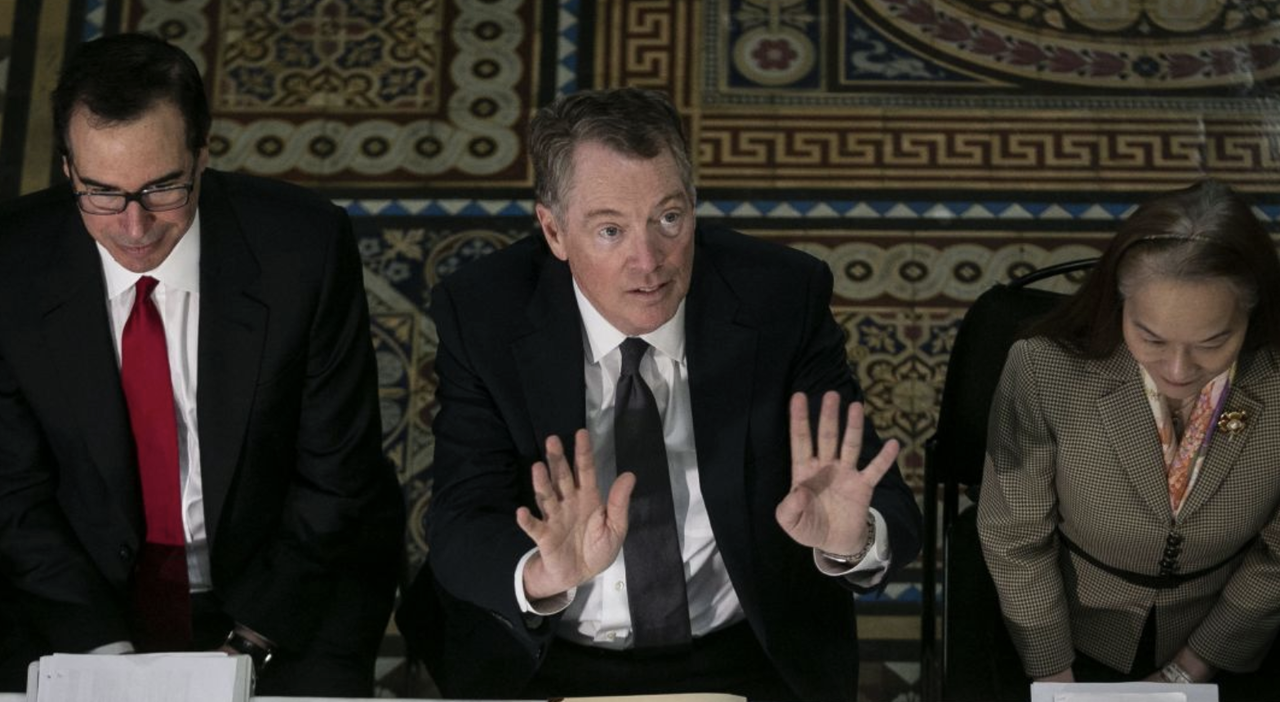We haven’t heard much about currency manipulation provisions of the US-China trade pact over the past four weeks, as reports suggested that the talks had stalled after the two sides had come ever so close to a workable agreement. But with the Trump Administration desperate to keep the market rally going after a few days of sputtering returns, the Wall Street Journal has brought us the latest courtesy of a handful of “current and former” officials.
The paper’s latest ‘scoop’ is essentially a rehash of what we heard a month ago: That the deal on currency is almost finally done. That both Washington and Beijing have agreed to abide by the G-20’s prohibition of currency manipulation, while Beijing has consented to allowing more transparency into how it manages its FX reserves.
This ‘revelation’ begs the question: If this is just a retread of what we heard a month ago, then why is this a story?
But that misses the point. Team Trump wants to keep the market in rally mode, and recent history has shown that nothing pumps the American equity market quite like a well-timed trade-deal scoop.
To be sure, Friday’s story featured one important new detail, however tenuous: Beijing might concede to an enforcement mechanism that would call for some kind of punishment should either side violate the currency rules.
What form will these measures take? Well, we don’t know exactly: All WSJ’s sources said is that the agreement might resemble the currency clause in the USMCA trade agreement hashed out last year. But although the details remained murky, WSJ was able to find an expert source who was willing to take a few guesses.
Treasury officials declined to provide more information on the currency enforcement rules and a spokeswoman for U.S. Trade Representative Robert Lighthizer declined to comment. A spokesman for the Chinese embassy in Washington didn’t immediately respond to a request for comment.
A senior Treasury official said the U.S.-China agreement on currency has similarities to the North American Free Trade Agreement revamp that the Trump administration signed last year with Canada and Mexico. The forex deal also has “certain aspects that go beyond” the new, unratified Nafta deal, known as the U.S.-Mexico-Canada Agreement, or USMCA.
[…]
Some expect the China pact to go further on enforcement than just requiring transparency, with penalties for violating international economic principles in ways that cheapen a national currency.
Mr. Bertsten said there is a “possibility that the enforcement mechanism may have broader coverage, which would be significant and would represent a further step forward into bringing discipline to the currency-manipulation issue.”
Mr. Bergsten said the U.S. and China would likely solve currency disputes in similar fashion to strictly trade-related issues, perhaps with sets of consultations among economic or Treasury officials from the two nations, with tariffs and perhaps other sanctions allowed as penalties.
As WSJ reminds us, Trump slammed China as a currency manipulator during the campaign, but his Treasury Department has demurred from officially labeling them as such. But with the yuan having weakened substantially during this latest bout of dollar strength, it’s not unreasonable that the administration would want to head off any further depreciation.
But just like all the reports about deals being (almost) reached on a broader enforcement mechanism (opening enforcement offices), tech transfers and market access, this one too comes with a caveat: Nothing is set in stone and everything is subject to change.
In other words, while the market continues to price in trade deal optimism, traders won’t know whether they’ve made a colossal miscalculation until it’s too late.
via ZeroHedge News http://bit.ly/2X7zVRo Tyler Durden
